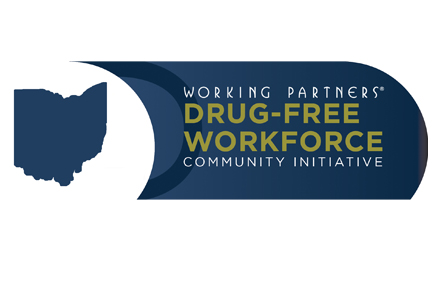Featured

New Initiative to Grow Ohio’s Employable Drug-Free Workforce
(Winter 2016) You’ve likely heard employers across Ohio say, “I can’t find employees who can pass a drug test.” In attempts to explore and combat this issue, the Ohio Department of Mental Health and Addiction Services (OhioMHAS) and Working Partners® have joined forces in a public-private partnership to take the Working Partners® Drug-Free Workforce Community Initiative statewide.
The new Initiative was adapted from a project Working Partners® has been executing with several county behavioral health boards (e.g., ADAMH Boards) for the past three years. With OhioMHAS’s support, this program is now being implemented in 18 communities in Ohio to address the economic threat of substance abuse by employees and job seekers in the state.
The Initiative will focus on four main objectives to expand Ohio’s employable drug-free workforce:
- Establish a Stakeholder Group
The desire to grow Ohio’s employable, drug-free workforce is not exclusive to any one entity. Instead, there are a number of organizations that have an interest in this goal, each with a special area of expertise. The Initiative will gather representatives from these organizations, including community behavioral health boards, local chambers of commerce, the Bureau of Worker’s Compensation, safety councils, Job and Family Services/OhioMeansJobs, County Commissioners, economic development organizations, businesses and media outlets. These are organizations that don’t often work together, but whose work often touches similar audiences. By combining efforts on this project and introducing these individuals to each other, there is a greater likelihood the group will continue beyond the initiative and work together to affect other workforce issues.
- Data Collection
National drug testing data shows that positive workforce drug tests are on the rise, but what does this mean for individual communities and for Ohio? To get a better understanding of how employers are being impacted by substance abuse, how they are responding and other related needs the Initiative will conduct three surveys in each of the 18 participating communities.
- Build a Nucleus of Businesses Offering Second Chances
A key element of this work involves an intensive training course to help businesses understand the role they and their drug-free workplace programs play in developing a drug-free workforce. Each community will solicit a small group of businesses to participate in an extensive course to learn about legal, operational and substance abuse issues. Participating businesses leave the course with a new or revised drug-free workplace program and a better understanding of how to access the treatment services available in their area.
- Identify Treatment Providers with Employer-Friendly Services
The Initiative will identify and help enhance local alcohol and other drug prevention and treatment providers to develop systems to help businesses prevent and respond to individuals who struggle with alcohol and other drug issues.
The participating 18 communities are each connected to the area’s community behavioral health board who applied and was selected by OhioMHAS. OhioMHAS is also giving each board a grant to support their work. The 18 participating communities are Austintown, Bellefontaine, Bowling Green, Cambridge Area, Clermont County, Columbiana County, Dayton, Geauga County, Hamilton, Hancock County, Lancaster, Marion County, Mount Vernon, Ottawa, Over-the-Rhine, Springfield, Vienna Township and Washington Courthouse.
By working at the local level, the Initiative will make a more lasting and tailored impact and strengthen the relationship between businesses and the community behavioral health boards. For, as Colleen Rains, director of human resources for Elford, Inc., shared in a video for the Initiative, both businesses and community behavior health boards need to figure out how to best help each other because “… in order for us to stay healthy and viable as an economic base to raise our families, our communities have to be clean and sober.”
DISCLAIMER: This publication is designed to provide accurate information regarding the subject matter covered. It is provided with the understanding that those involved in the publication are not engaged in rendering legal counsel. If legal advice is required, the services of a competent professional should be sought.